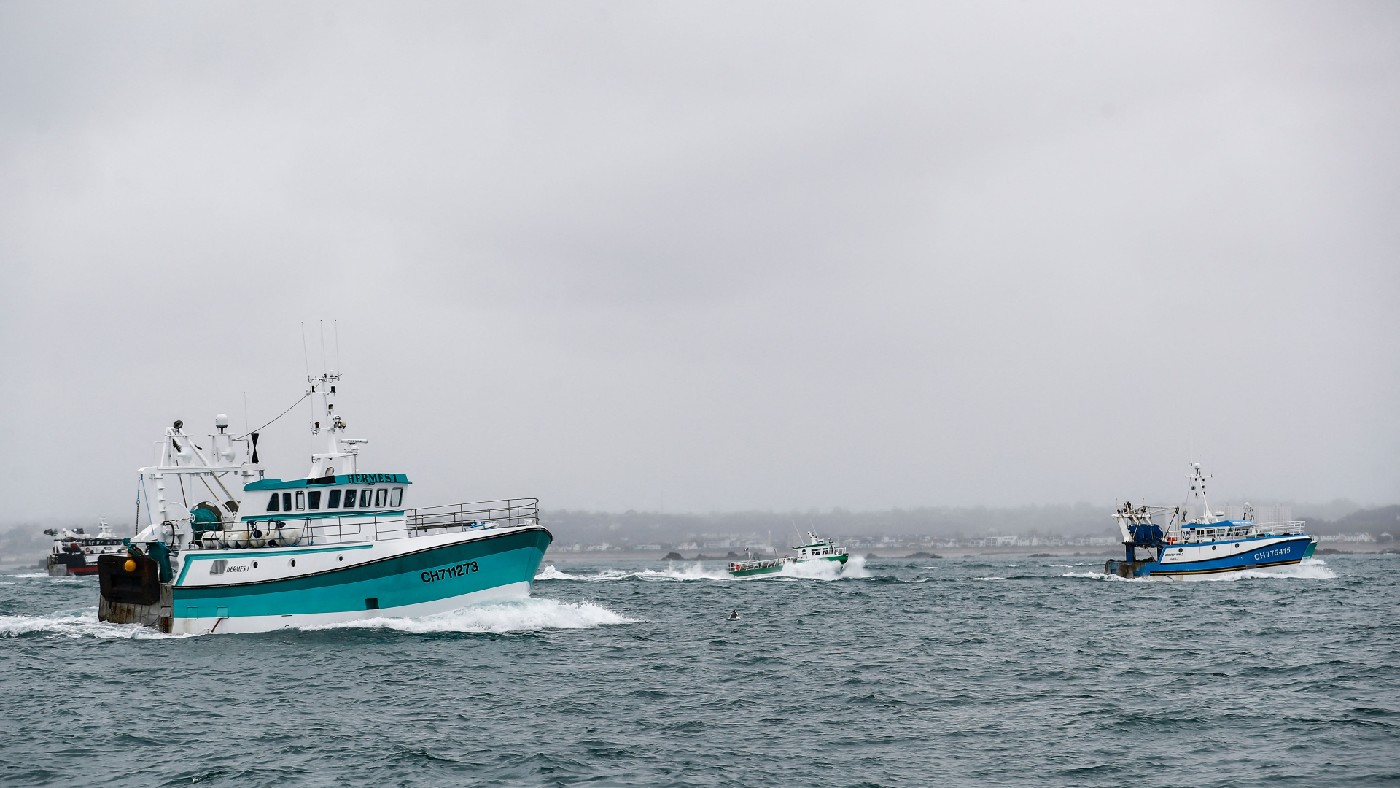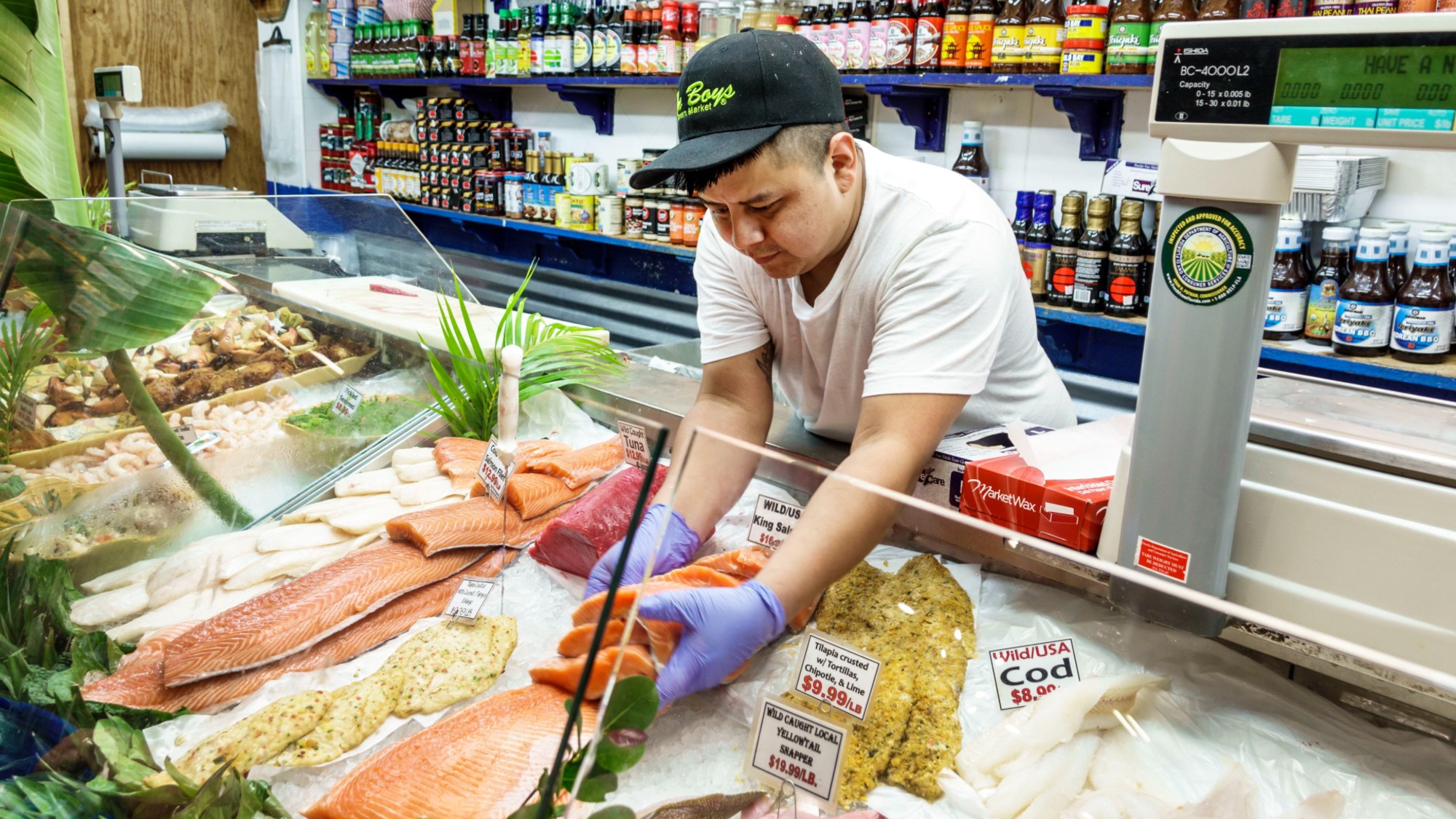French accuse Britain of starting Brexit fishing war for ‘political ends’
Decision to reject 75% of French fishing boat licences puts further strain on UK relationship with closest neighbour

A free daily email with the biggest news stories of the day – and the best features from TheWeek.com
You are now subscribed
Your newsletter sign-up was successful
The government’s decision to reject three quarters of small French fishing boat licence applications has threatened to wage what The Telegraph has dubbed “a fresh Brexit fishing war”.
As part of the Brexit deal, it was agreed that French boats under 12 metres in length would be allowed to fish within the UK’s inshore waters – provided they had a proven record of fishing in those areas and the relevant licence.
However, officials revealed on Tuesday that they plan to grant just 12 out of 47 licences requested by French boats. An additional 40 requests were rejected for not meeting the government’s criteria.
The Week
Escape your echo chamber. Get the facts behind the news, plus analysis from multiple perspectives.

Sign up for The Week's Free Newsletters
From our morning news briefing to a weekly Good News Newsletter, get the best of The Week delivered directly to your inbox.
From our morning news briefing to a weekly Good News Newsletter, get the best of The Week delivered directly to your inbox.
Officials cited “in-depth investigation into data provided by smaller fishing vessels” as a factor in their decision to reject so many requests, the FT reported. One told The Telegraph that the UK had “bent over backwards to be as generous as we could be”.
Guernsey, the other self-governing area of the Channel Islands, is also expected to grant fewer licences than the number France has requested. The news comes just months after a flotilla of French boats gathered off the coast of Jersey to protest at the conditions of the post-Brexit fishing licences, which limited the number of days and the gear permitted for fishing.
Tensions escalated to the extent that Annick Girardin, France’s minister for maritime affairs, warned that Jersey’s electricity supply could be cut off “if we have to”, The Guardian reported.
Eventually the choppy diplomatic waters were calmed, with Britain withdrawing the Royal Navy ships it sent to guard Jersey’s main port – a move that Clement Beaune, the French Europe minister, had described as an attempt to “intimidate” France, said The Times.
A free daily email with the biggest news stories of the day – and the best features from TheWeek.com
Westminster’s decision to reject so many licences was met with fury, with Girardin declaring that “French fishing should not be taken hostage by the British for political ends”. Olivier Le Nezet, the president of the Brittany fishermen’s committee, described the decision as “a declaration of war on the water and on the land”, said The Telegraph.
The UK is now bracing itself for French vengeance. “We will not hesitate to take retaliatory action, collectively,” Beaune told the RTL radio station on Tuesday evening. President Emmanuel Macron’s response is expected to be “particularly severe”, with his eyes on retaining support ahead of the presidential election next April, reported the same paper.
Granting so few French fishing licences will undoubtedly put further strain on Britain’s already fractured relationship with its long-term ally and closest neighbour. Less than two weeks ago, the UK, US and Australia sparked French fury by revealing their Aukus submarine defence deal, a move which led Macron to withdraw his US and Australia-based ambassadors in retaliation.
With the Conservative Party conference looming, reports are suggesting that this latest chapter in the ongoing Brexit fishing war could be an attempt to distract from the chaos of the UK’s fuel crisis. “Ministers may hope it shifts attention back onto Brexit,” said The Telegraph.
Kate Samuelson is The Week's former newsletter editor. She was also a regular guest on award-winning podcast The Week Unwrapped. Kate's career as a journalist began on the MailOnline graduate training scheme, which involved stints as a reporter at the South West News Service's office in Cambridge and the Liverpool Echo. She moved from MailOnline to Time magazine's satellite office in London, where she covered current affairs and culture for both the print mag and website. Before joining The Week, Kate worked at ActionAid UK, where she led the planning and delivery of all content gathering trips, from Bangladesh to Brazil. She is passionate about women's rights and using her skills as a journalist to highlight underrepresented communities. Alongside her staff roles, Kate has written for various magazines and newspapers including Stylist, Metro.co.uk, The Guardian and the i news site. She is also the founder and editor of Cheapskate London, an award-winning weekly newsletter that curates the best free events with the aim of making the capital more accessible.
-
 At least 8 dead in California’s deadliest avalanche
At least 8 dead in California’s deadliest avalancheSpeed Read The avalanche near Lake Tahoe was the deadliest in modern California history and the worst in the US since 1981
-
 Political cartoons for February 19
Political cartoons for February 19Cartoons Thursday’s political cartoons include a suspicious package, a piece of the cake, and more
-
 The Gallivant: style and charm steps from Camber Sands
The Gallivant: style and charm steps from Camber SandsThe Week Recommends Nestled behind the dunes, this luxury hotel is a great place to hunker down and get cosy
-
 Local elections 2026: where are they and who is expected to win?
Local elections 2026: where are they and who is expected to win?The Explainer Labour is braced for heavy losses and U-turn on postponing some council elections hasn’t helped the party’s prospects
-
 How corrupt is the UK?
How corrupt is the UK?The Explainer Decline in standards ‘risks becoming a defining feature of our political culture’ as Britain falls to lowest ever score on global index
-
 The high street: Britain’s next political battleground?
The high street: Britain’s next political battleground?In the Spotlight Mass closure of shops and influx of organised crime are fuelling voter anger, and offer an opening for Reform UK
-
 Biggest political break-ups and make-ups of 2025
Biggest political break-ups and make-ups of 2025The Explainer From Trump and Musk to the UK and the EU, Christmas wouldn’t be Christmas without a round-up of the year’s relationship drama
-
 ‘The menu’s other highlights smack of the surreal’
‘The menu’s other highlights smack of the surreal’Instant Opinion Opinion, comment and editorials of the day
-
 Is a Reform-Tory pact becoming more likely?
Is a Reform-Tory pact becoming more likely?Today’s Big Question Nigel Farage’s party is ahead in the polls but still falls well short of a Commons majority, while Conservatives are still losing MPs to Reform
-
 ‘Latinos bring a wealth of knowledge and cultural connection to the ocean’
‘Latinos bring a wealth of knowledge and cultural connection to the ocean’Instant Opinion Opinion, comment and editorials of the day
-
 Taking the low road: why the SNP is still standing strong
Taking the low road: why the SNP is still standing strongTalking Point Party is on track for a fifth consecutive victory in May’s Holyrood election, despite controversies and plummeting support